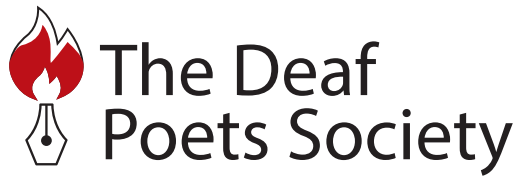Kamila Rina
Delicate Fucking Flower
“but she means to have what she
has earned,
sweet sighs, safe houses,
hands she can trust.”
— Lucille Clifton, “to my friend, Jerina”
He can’t tell I grit my back teeth when he exclaims,
“An allergy to coffee? I’ve never heard of that!”, and I shrug,
as if this is the first time someone has expressed their
incredulity so profoundly, I say, “It happens”. I’m gracious,
calm, I mean if you discount the slightest shortening of my
upper lip, a bit of a curl really, I wouldn’t say a sneer. I
used to explain myself and my faulty body, swim full-tilt into
conversational nets full of marvel and pitying curiosity.
I’ve stopped. Accepted it. And maybe I sigh,
but I mean to have what I
reach for: clean safe air, lungs rounded with ease, the boring
sort of acceptance, a normalised story about my body.
I want chemical masks as quotidian accessories, like umbrellas
or hats. I want the bread-like, unexceptional family violence
that led to this, that sickened and curled me, so many
of us, up inside, like xylem slowly dying inside a turned
tree trunk, unseen but heavy with consequences, to be
recognised, protested, uprooted by outrage and
practical solutions, never-again changes, forever spurned.
We have earned
the revolution. We’ve struggled to see ourselves reflected
in the dirty surface of the mainstream; to meet our bedrock
yearning for safety, gentleness, absence of swinging fists
or planks of wood, of flying spit, sometimes laced with acrid
words; to cobble together access, sometimes cutting wood
planks for a ramp, sometimes asking friends, spouses,
strangers, to change their detergent, give up their
favourite shampoo or deodorant. As abnormal and
inconvenient as we seem, we deserve carefree carouses,
sweet sighs, safe houses,
same as you who can breathe the poison in, let it wash
through your blood, let your liver scrape it all out like a washing
machine while you talk, laugh, sleep, same as you who
can walk far, carry your groceries, can function when the music
is so loud it’s thick in the air, in our breastbones, our brains.
But our differences are rarely invited, planned for, discussed.
So I am a delicate fucking flower; you can’t drink coffee next to
me, or peel an orange, smoke, sip wine, invite me to dance parties.
But I will still surprise you: claim this body and safety and lust,
reach for hands that I can trust.
The Resistance
“Describe the colors
rushing towards you
when your body is taken over
your fury not yet molded neatly”
—Nicola Morris, “A Partial Eclipse”
We want to start an underground resistance movement.
We will go out late at night, dressed in taupe camo, with
the itchy tags ripped out, paint “#freetoflap” on statues,
especially those where the arms and hands are extra still,
tucked away, like they’d been through a quiet-hands protocol,
maybe some ABA, some toxic parenting dolours.
When caught by the unjust authorities, we will only identify
ourselves via repeating pleasing syllables or lines from
films we like. We won’t make eye contact with their pallor.
We will describe the colors
we see during their interrogation, which words or feelings
call up which hue, tell them about our special interests,
for an hour or two, explain why people should #justask
instead of guessing at intentions or politely assuming
meaning, torment them by relentlessly questioning,
in many many different phrasings, the exact purpose
of small talk, until, in exhaustion and confusion, they let
us go. Undeterred, we will continue: organise quiet, scent-free
stimming demonstrations, which will still lead to acrimonious
cops rushing towards us
as if we’re the biggest threat— The fantasy ends here. Never
underestimate the capacity of fearful ignorance, of systemic
suspicion, to make the unknown killable. Stephon Watts.
Witness the need for the Disability Day of Mourning. Alex
Spourdalakis. Oh, they fear us (especially so if we are dark and
male), for our silver toy trucks, our stimming, our blunt, moreover
monotone or naive-sounding, speech, lack of eye contact,
echolalia, lightning-quick pattern matching. Arnaldo Rios.
The fear becomes viscous, stronger, in response to our overt
meltdowns, when our bodies are taken over
by technicolor-intense emotions, pulling our fibres apart,
our brains temporarily offline. Ryan Maldonado. When we sit
and rock, or flail and keen, and can’t speak, and are less than
human, and they wish to kill us. And sometimes they do.
Kayden Clarke. So, we fantasise about starting an underground
resistance, to normalise who we are, push back concretely,
assert our humanity, (Robert Dziekański), maybe become
folk heroes, like Polish youth resistance groups during
the war, out at night rewriting Nazi propaganda completely;
our fury is not yet molded neatly.
Note: The names mentioned in this pieces are all of autistics and/or folks having a meltdown in public who were assaulted or killed by police.
Kamila Rina
Kamila Rina is an autistic, mad, and physically disabled immigrant Jewish non-binary bisexual poet, a sexuality, gender, and disability educator, and a survivor of long-term violence. They enjoy talking about being present in one’s body and fomenting the revolution. They like trees, books, chocolate, and people and plants that smell good. Kamila has previously been published in Room magazine, Breath & Shadow, Sinister Wisdom, Monstering, and We Have Come Far, and has produced a chapbook titled Multitasking with Feelings. Find them at KamilaRina.com
[Image Description: A drawing of a pale-skinned person, wearing a purple hoodie with a multi-gender symbol on it and the hood up, dark blue jeans, and light blue shoes. They are standing against a white background, with their hands in the pockets of their jeans. Their facial expression is maybe quizzical, maybe sullen. They are wearing round glasses, and a bit of dark curly hair peeks out from under the purple hood.]

